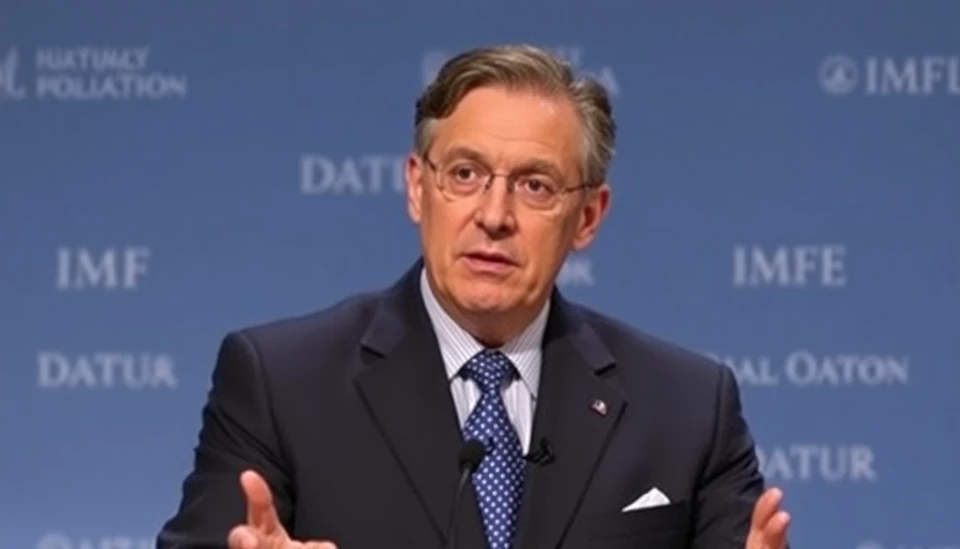
The International Monetary Fund (IMF) has issued a stark warning regarding the rise of global debt levels, indicating that new surges are likely to occur as economic growth continues to falter across various regions. The latest data from the Fund reveals a troubling trend, where increasing borrowing is outpacing the recovery efforts seen in many economies post-pandemic.
According to the IMF, total global debt has already reached staggering proportions, estimated to be over $300 trillion, which presents a significant burden for nations struggling to maintain sustainable fiscal policies. These growing debts are largely fueled by government borrowing in some of the world's major economies, with interest rates remaining relatively low, enticing nations to take on more loans.
In its analysis, the IMF highlighted that this increase in debt is particularly concerning in emerging markets and developing economies. The simultaneous pressures of high inflation, rising interest rates, and stagnant economic growth are complicating the ability of these nations to service their debts. With inflation continuing to erode the purchasing power of consumers and businesses, policymakers are finding it increasingly difficult to stimulate growth without incurring further debt.
The IMF's report emphasizes that as economic growth weakens, the likelihood of a debt crisis increases, particularly in regions that have not been able to recover robustly from the pandemic's impact. Countries already facing economic challenges are now at a greater risk, as they may not have the fiscal space to respond to external shocks or domestic needs due to their elevated debt levels.
Interestingly, the Fund noted that while advanced economies have experienced a rebound, it has not been uniform. Some countries are still struggling with high levels of unemployment and slow business investment, creating a patchwork of recoveries that could be jeopardized by escalating debt levels. The IMF in particular pointed to the need for better fiscal frameworks that can enhance debt sustainability, while also promoting economic growth.
In light of these concerns, IMF officials are advocating for proactive measures to address the mounting debt crisis. Recommendations include strengthening fiscal rules, enhancing transparency around government borrowing, and establishing debt monitoring frameworks to ensure that nations can navigate economic uncertainties without putting their financial stability at risk.
As discussions continue at the IMF about potential reforms and preventative strategies, the global community is urged to pay attention to these warnings. The looming threat of a debt crisis could not only stall economic recovery efforts but also set back progress made in addressing critical issues such as poverty and inequality worldwide.
With an emphasis on cooperation and reform, the IMF is calling for nations to band together to tackle the challenges posed by rising debt levels, advocating for policies that can stimulate growth while ensuring that countries do not become mired in unsustainable obligations that stifle future progress.
In summary, as the IMF raises the alarm over global debt surges and the risks of economic stagnation, it is clear that immediate and coordinated action is necessary to steer economies toward a more sustainable growth path. The ongoing dialogue among world leaders will be crucial in shaping policies that will not only address current challenges but also lay the foundation for resilient and inclusive growth in the future.
#IMF #GlobalDebt #EconomicGrowth #DebtCrisis #EmergingMarkets #SustainableGrowth #FiscalPolicy #EconomicRecovery
Author: Laura Mitchell




